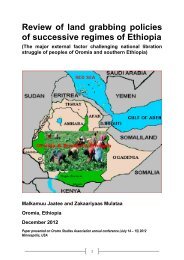freakonomics
freakonomics
freakonomics
You also want an ePaper? Increase the reach of your titles
YUMPU automatically turns print PDFs into web optimized ePapers that Google loves.
worst-performing ethnic group on SATs. Blacks earn less than whites. They are still just<br />
not doing well, period. I basically want to figure out where blacks went wrong, and I<br />
want to devote my life to this.”<br />
In addition to economic and social disparity between blacks and whites, Fryer had<br />
become intrigued by the virtual segregation of culture. Blacks and whites watch different<br />
television shows. (Monday Night Football is the only show that typically appears on each<br />
group’s top ten list; Seinfeld, one of the most popular sitcoms in history, never ranked in<br />
the top fifty among blacks.) They smoke different cigarettes. (Newports enjoy a 75<br />
percent market share among black teenagers versus 12 percent among whites; the white<br />
teenagers are mainly smoking Marlboros.) And black parents give their children names<br />
that are starkly different from white children’s.<br />
Fryer came to wonder: is distinctive black culture a cause of the economic disparity<br />
between blacks and whites or merely a reflection of it?<br />
As with the ECLS study, Fryer went looking for the answer in a mountain of data: birthcertificate<br />
information for every child born in California since 1961. The data, covering<br />
more than sixteen million births, included standard items such as name, gender, race,<br />
birth-weight, and the parents’ marital status, as well as more telling factors about the<br />
parents: their zip code (which indicates socioeconomic status and a neighborhood’s racial<br />
composition), their means of paying the hospital bill (again, an economic indicator), and<br />
their level of education.<br />
The California data prove just how dissimilarly black and white parents name their<br />
children. White and Asian-American parents, meanwhile, give their children remarkably<br />
similar names; there is some disparity between white and Hispanic-American parents, but<br />
it is slim compared to the black-white naming gap.<br />
The data also show the black-white gap to be a recent phenomenon. Until the early<br />
1970s, there was a great overlap between black and white names. The typical baby girl<br />
born in a black neighborhood in 1970 was given a name that was twice as common<br />
among blacks than whites. By 1980 she received a name that was twenty times more<br />
common among blacks. (Boys’ names moved in the same direction but less<br />
aggressively—probably because parents of all races are less adventurous with boys’<br />
names than girls’.) Given the location and timing of this change—dense urban areas<br />
where Afro-American activism was gathering strength—the most likely cause of the<br />
explosion in distinctively black names was the Black Power movement, which sought to<br />
accentuate African culture and fight claims of black inferiority. If this naming revolution<br />
was indeed inspired by Black Power, it would be one of the movement’s most enduring<br />
remnants. Afros today are rare, dashikis even rarer; Black Panther founder Bobby Seale<br />
is best known today for peddling a line of barbecue products.<br />
A great many black names today are unique to blacks. More than 40 percent of the black<br />
girls born in California in a given year receive a name that not one of the roughly 100,000<br />
baby white girls received that year. Even more remarkably, nearly 30 percent of the black









